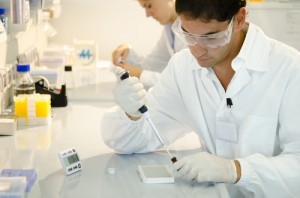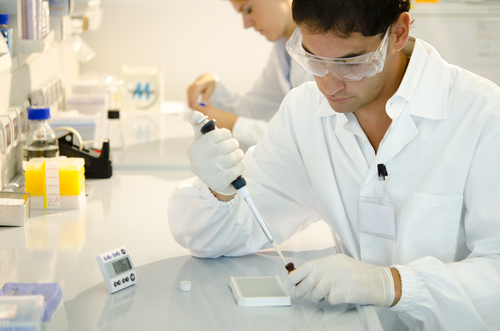 Heat shock protein 70’s overexpression stabilizes the Nucleotide-binding oligomerization domain-containing protein 2 (NOD2) Crohn mutants, rescuing its activity and ultimately providing an effective therapy for Crohn’s disease, a study conducted by University of Delaware researchers suggests.
Heat shock protein 70’s overexpression stabilizes the Nucleotide-binding oligomerization domain-containing protein 2 (NOD2) Crohn mutants, rescuing its activity and ultimately providing an effective therapy for Crohn’s disease, a study conducted by University of Delaware researchers suggests.
The study, published in the Journal of Biological Chemistry and funded by the National Institutes of Health, began by determining the mechanisms of misactivation in the NOD2 Crohn mutants by developing a cell-based system to screen for protein-protein interactors of NOD2.
The team identified heat shock protein 70 (HSP70), which has previously been linked to inflammation (especially in the regulation of anti-inflammatory molecules), as a protein interactor of both wild type and Crohn mutant NOD2. As explained in the study, HSP70 assists with the folding of proteins into their correct three-dimensional shapes, even when cells are under stress from elevated body temperatures, such as a fever.
Inducing HSP70 expression in cells increased the response of NOD2 to bacterial cell wall fragments. In addition, an HSP70 inhibitor, KNK437, was capable of decreasing NOD2-mediated NF-κB activation in response to bacterial cell wall stimulation.
As a result, the team found that HSP70 regulates the half-life of NOD2 by more than four hours, as increasing the HSP70 level in cells increased the half-life of NOD2, and down-regulating HSP70 decreased the half-life of NOD2.
These findings showed that the mutation in NOD2 results in an increase in bowel inflammation. Thus, restoring the stability of the NOD2 Crohn mutants is sufficient for rescuing the ability of these mutations to signal the presence of a bacterial cell wall ligand, researchers concluded.
In this study, researchers tested kidney, colon, and white blood cell lines. In the next phase of the study, patient tissue will be examined in collaboration with Nemours/A.I. duPont Hospital for Children to determine if NOD2 levels can be controlled via HSP70 expression.

